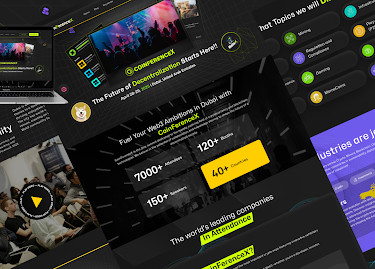How Can Fintech Platforms Benefit Businesses?

Financial technology (fintech) is developing at breakneck speed and facilitating the creation of a bevy of B2B and consumer solutions. From payment processing and lending to investment advice and cryptocurrency conversion, these platforms are giving businesses of all sizes an edge in the marketplace. If the Unit demo is anything to go by, it will become easier for businesses to create innovative and revolutionary digital products without having to invest a lot of time and effort in the development process.
If you are considering taking your offerings into the digital financial services sector, here are just some of the ways that working with a fintech platform can benefit your business.
3, 2, 1, Launch
Fintech platforms enable organizations to quickly launch innovative products with minimal development costs. By offering pre-built functionality such as user onboarding, payment processing, and fraud detection services, these platforms are ideal for companies that want to create innovative products and services without investing significant resources in writing code from scratch and maintaining complicated technology infrastructure. This takes the project timeline down from months or years to weeks or even days, allowing companies to go from idea to product quickly. A shorter development timeline means the ability to realize a greater ROI than possible with a traditional software development approach.
As Per Instructions
Regulatory compliance is a huge challenge for companies operating in the financial services industry. New laws and regulations introduced in recent years have significantly increased the compliance and reporting requirements for financial firms operating around the world. Working with an established fintech platform makes it easy for businesses to provide new functionalities and enter new markets without having to worry about complying with regulatory requirements. This significantly reduces the risk involved in introducing new products and can lower the costs associated with regulatory compliance activities, enabling companies to better focus on their core business objectives and improve profitability.
Skip the Wine and Dine
Banking relationships are a critical component of business operations, but the process of establishing a relationship with a bank can be time-consuming and complex. Fortunately, many fintech platforms already have banking partnerships, making it easy for companies to gain access to mainstream banking services in a few hours instead of days or weeks. This can save time and money by eliminating the need for companies to perform due diligence on each bank partner, and it can streamline the overall banking process by eliminating many of the common barriers to access faced by smaller businesses that may have less financial power.
Helpful Handshakes
Aside from banking relationships, there are a variety of other data sources that can add value and increase the effectiveness of a company’s operations. Many fintech platforms provide the ability to integrate with a variety of third-party applications, making it possible to drive engagement, improve customer satisfaction, increase operational efficiency, and more. For instance, integration with Amazon Cognito enables apps to authenticate customer data with lightning speed and zero friction. By partnering with a fintech platform, businesses can eliminate the need to develop expensive and convoluted custom integrations and instead take advantage of built-in integrations that are optimized for speed and security.
Call Security!
Data security infrastructure is a crucial issue for all businesses operating in the digital age, especially for those who deal with sensitive data such as financial records and personally identifiable information. Unfortunately, achieving enterprise-level security is tricky and expensive. Businesses need to engage specialized consultants to ensure that the right security measures are in place to protect critical assets from unauthorized access. Quality fintech platforms can take off the burden by providing said enterprise-grade security solutions. A trusted platform typically also provides comprehensive cybersecurity capabilities that can reduce the risk of data breaches and help minimize the impact of any incidents.
Growth x100
The core of a strong fintech solution is its ability to scale up or down quickly and painlessly. API functionality should be robust enough to allow businesses to customize solutions to meet their unique needs. The supporting platform should easily accommodate changes without compromising performance or security or requiring additional development work. Pricing structures for many fintech platforms are also reflective of the size of each client, with small businesses paying only for what they use. This allows startups to get their foot in the door. As these businesses grow, pricing may increase accordingly to reflect expanded features and requirements.
I Can See Clearly Now
Financial data is at the heart of every business. Having access to comprehensive data is vital to stay on top of trends and make informed decisions. Fintech platforms come with built-in analytical tools that help track key metrics such as cash flow and average revenue per user. These insights can help businesses identify growth opportunities and potential pain points that need to be addressed. Particularly for businesses that are just venturing into financial services, having insight into operations can help provide valuable ideas on how to better adjust their business plan to meet customer and market needs.
Without access to millions of dollars in funds and a full team of developers, it can be hard for smaller businesses to get a slice of the fintech pie. With help from fintech platforms, these businesses can now have access to the right tools and services to help them get started and grow exponentially.



